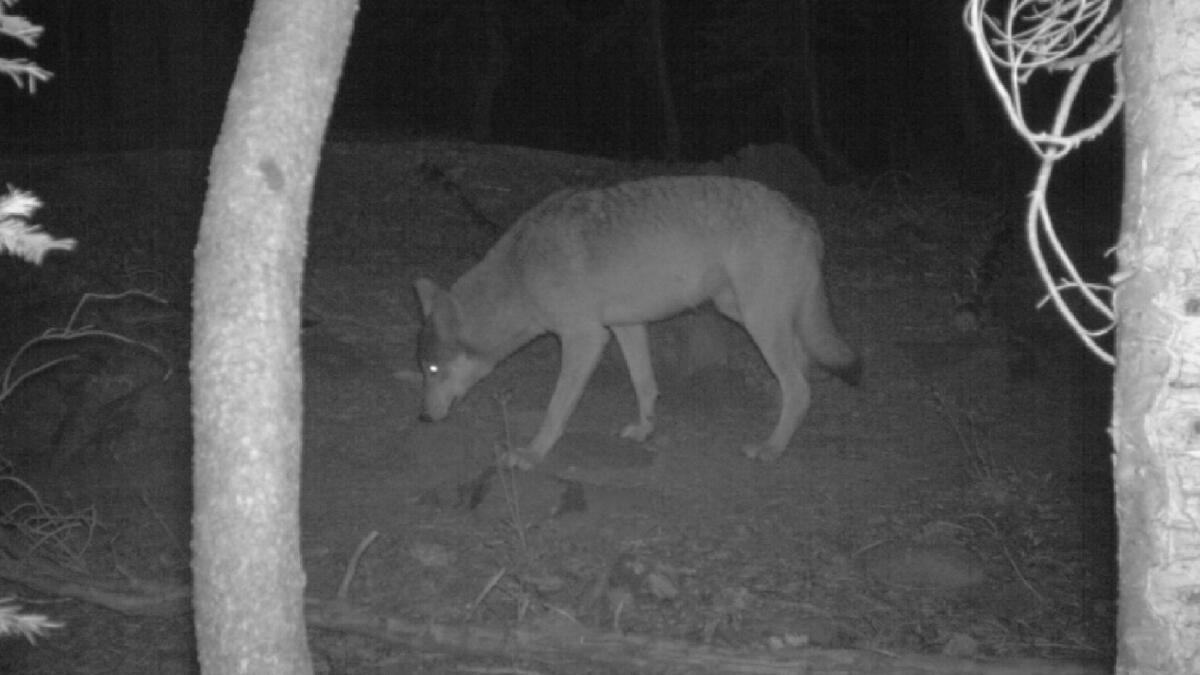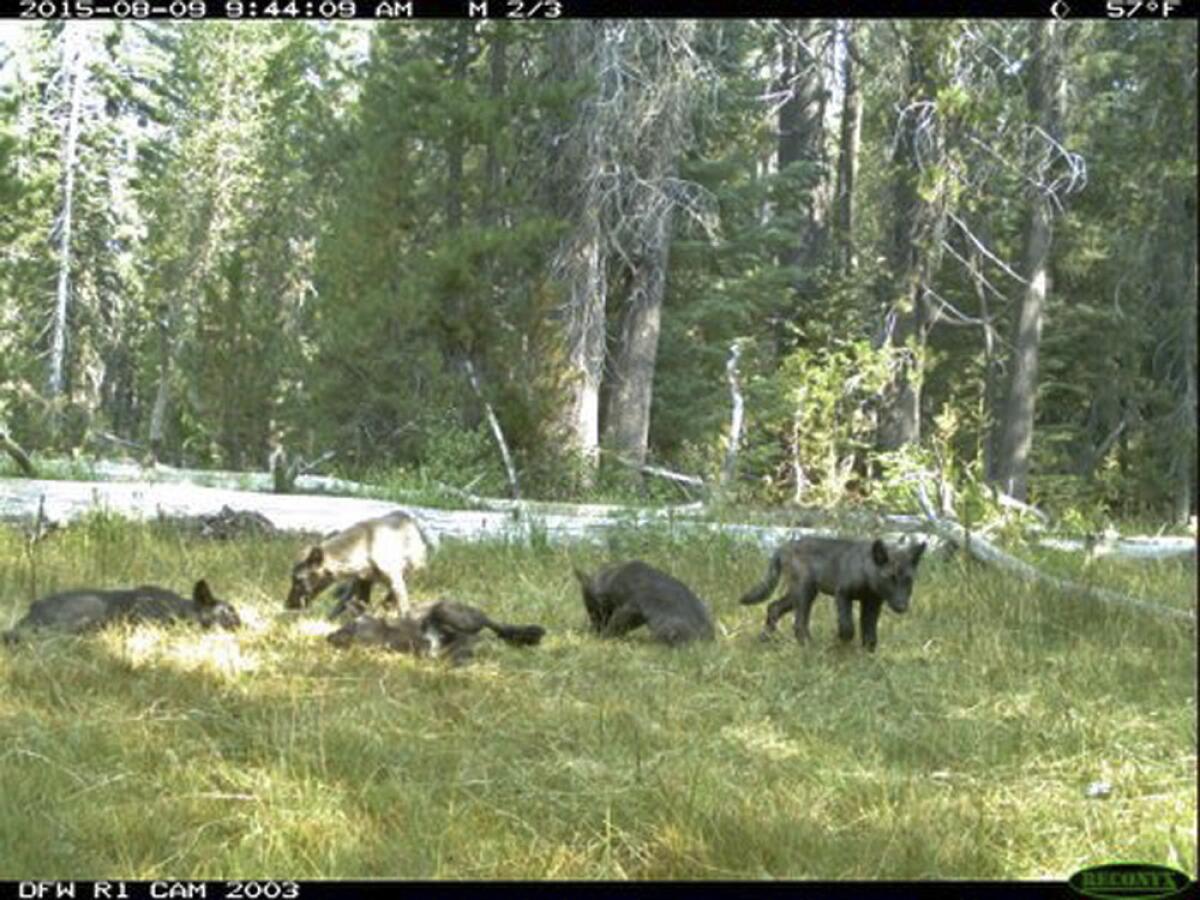Meet the Lassen Pack: New family of gray wolves found in Northern California
- Share via
A recently discovered gray wolf pack is now the second-known family of the endangered species to call the Northern California wilderness home, state wildlife officials confirmed Wednesday.
Known as the Lassen Pack, the family includes two adult gray wolves and at least three pups.
The pups and the group’s matriarch were tracked this summer crossing into industrial timberlands and private and public properties throughout western Lassen County, according to the California Department of Fish and Wildlife. The pack also has ventured into Plumas County.
The family’s arrival comes two years after the first pack of gray wolves was spotted in the area since the 1920s. In 2014, state wildlife authorities added gray wolves to California's endangered species list.

First clues of a wolf pack
Biologists first suspected that California could have a new wolf pack last summer and fall. At the time, cameras positioned along remote trails in Lassen County photographed two gray wolves traveling together.
Scientists collected scat samples and determined one of the wolves was male. The wolf came from Oregon and was born into a group known as the Rogue Pack. The collected samples indicated the other wolf was female, but her origins were not known.
The photos and DNA results sparked the curiosity of scientists throughout the region.
Capture and release
In May, biologists from the U.S. Forest Service found evidence of wolves in the Lassen National Forest. Later, scientists with the Fish and Wildlife Department initiated a plan to collar one of the animals.
They tried for 12 days to trap one of the wolves.
Then on June 30, biologists caught the 75-pound adult female.
After examining her, biologists discovered she had given birth to pups in the spring, Deana Clifford, the department’s senior wildlife veterinarian, said in a statement. During the examination, researchers collected genetic and other biological samples from the wolf.
The biologists determined she was “in excellent condition,” Clifford said. She then was fitted with a collar so scientists could better track her movements in the Lassen National Forest.
The next day, biologists were conducting a follow-up check on the female wolf when they found pup tracks. They later discovered the pups and female wolf had been photographed by U.S. Forest Service cameras.
“The pups were gray in color and were serendipitously photographed playing in front of the camera,” the Fish and Wildlife Department said.
Biologists are hoping the tracking device attached to the female wolf will give them a better understanding of what she prefers to eat as well as her reproduction habits, survival practices and daily patterns.

The Shasta Pack
In 2015, the first confirmed pair of gray wolves birthed five pups in eastern Siskiyou County.
The bunch, known as the Shasta Pack, was the first pack in the state in nearly 100 years.
Although the pack’s current status is not known, one of the pups was spotted in northwestern Nevada in November 2016, according to the Fish and Wildlife Department.
ALSO
A Riverside County mountain lion sired 11 kittens, but that won't fix weak gene pool
'A travel ban for a pug? I don't think so!' How an abused puppy made the trip from Iran to America
A week in the life of P‑22, the big cat who shares Griffith Park with millions of people
Sign up for Essential California
The most important California stories and recommendations in your inbox every morning.
You may occasionally receive promotional content from the Los Angeles Times.







